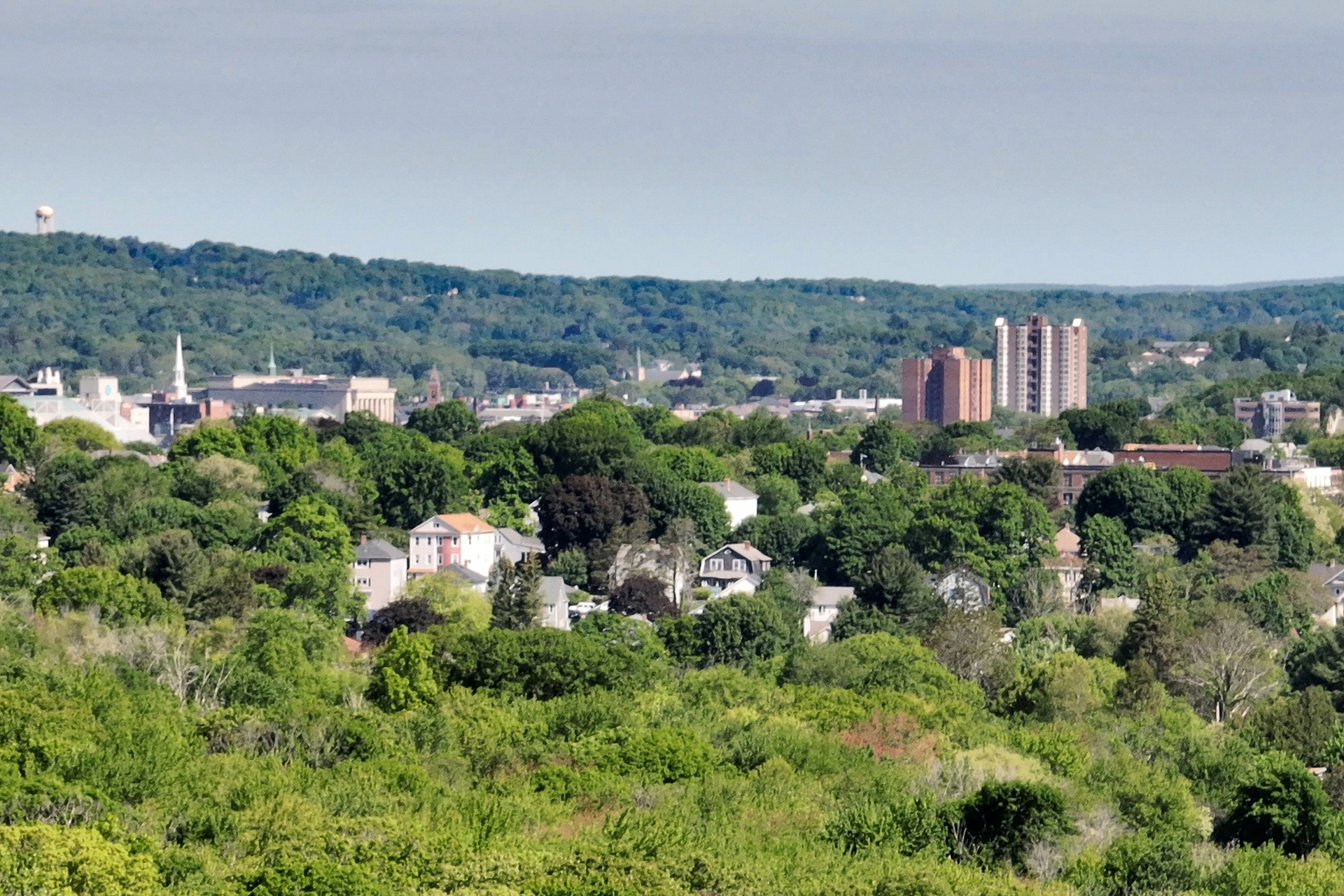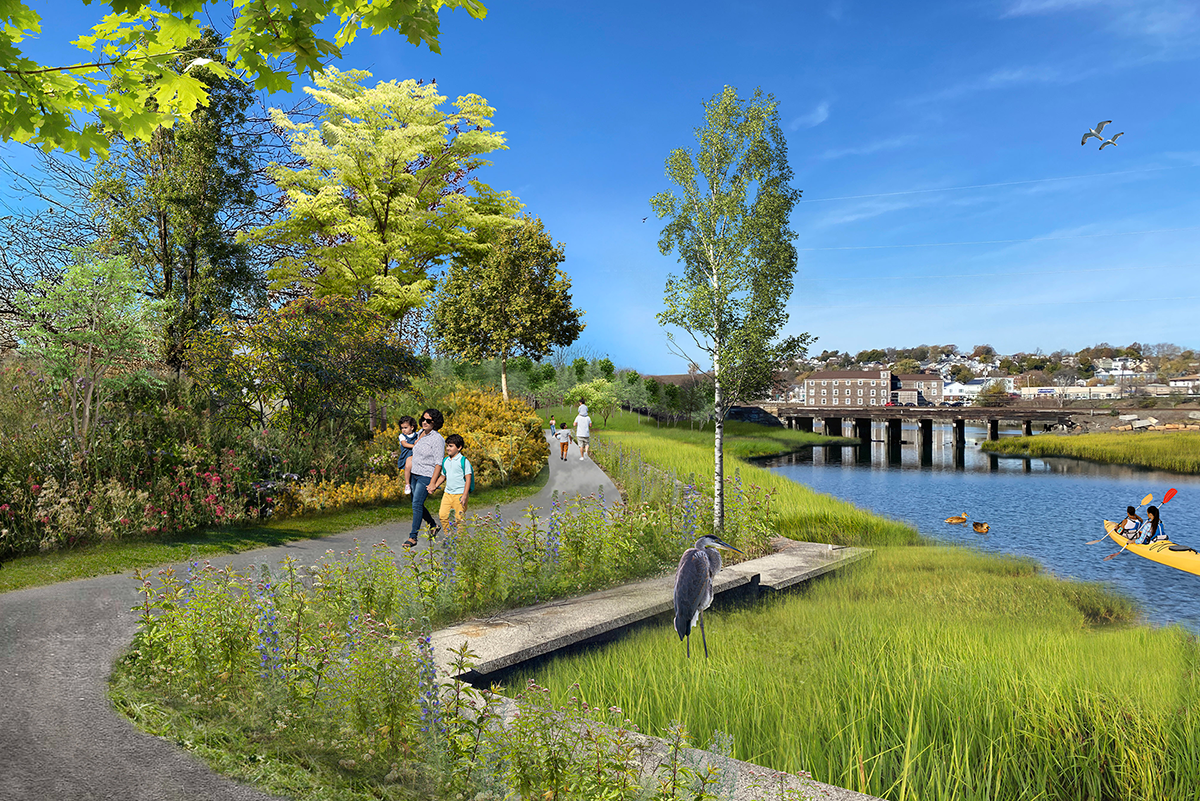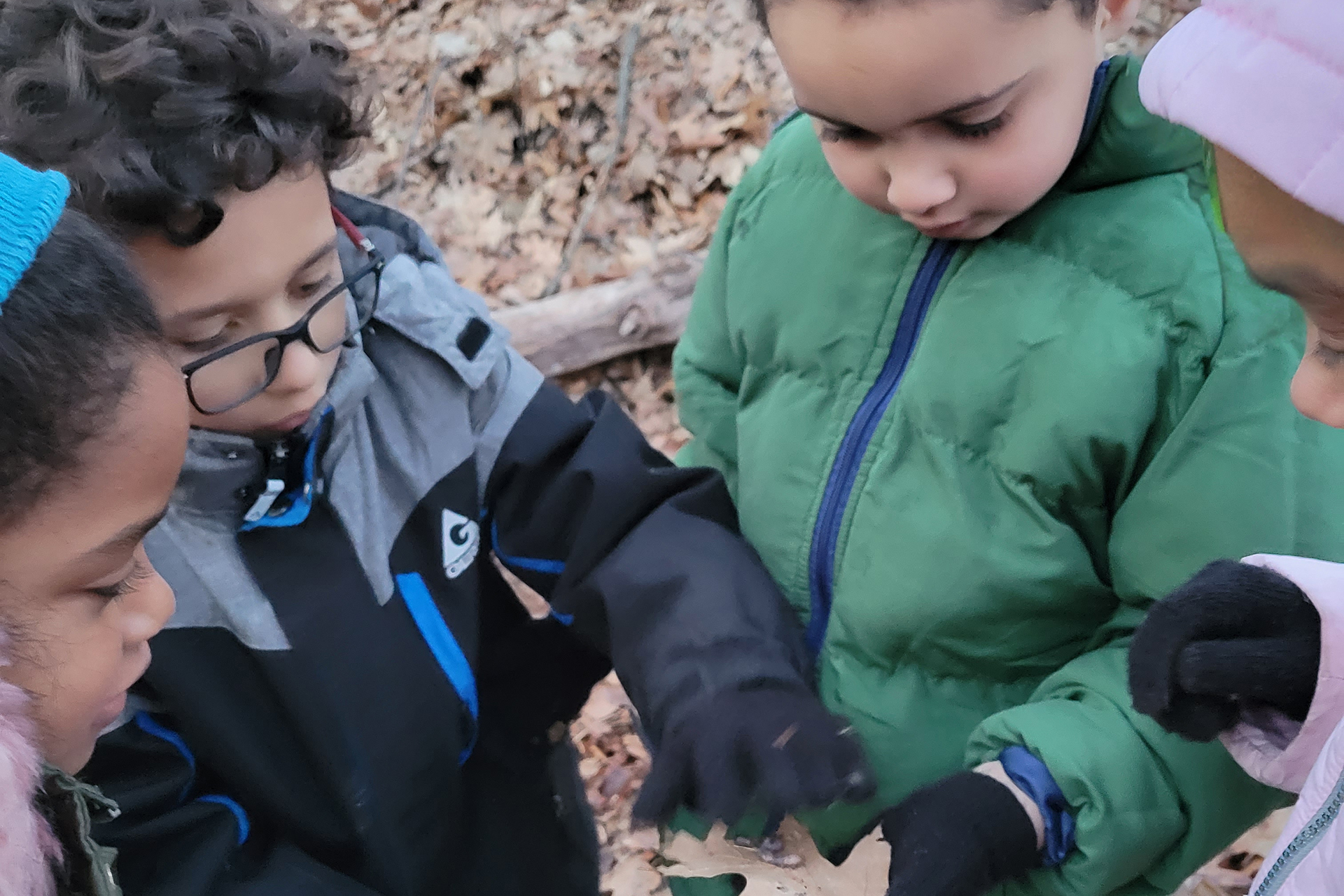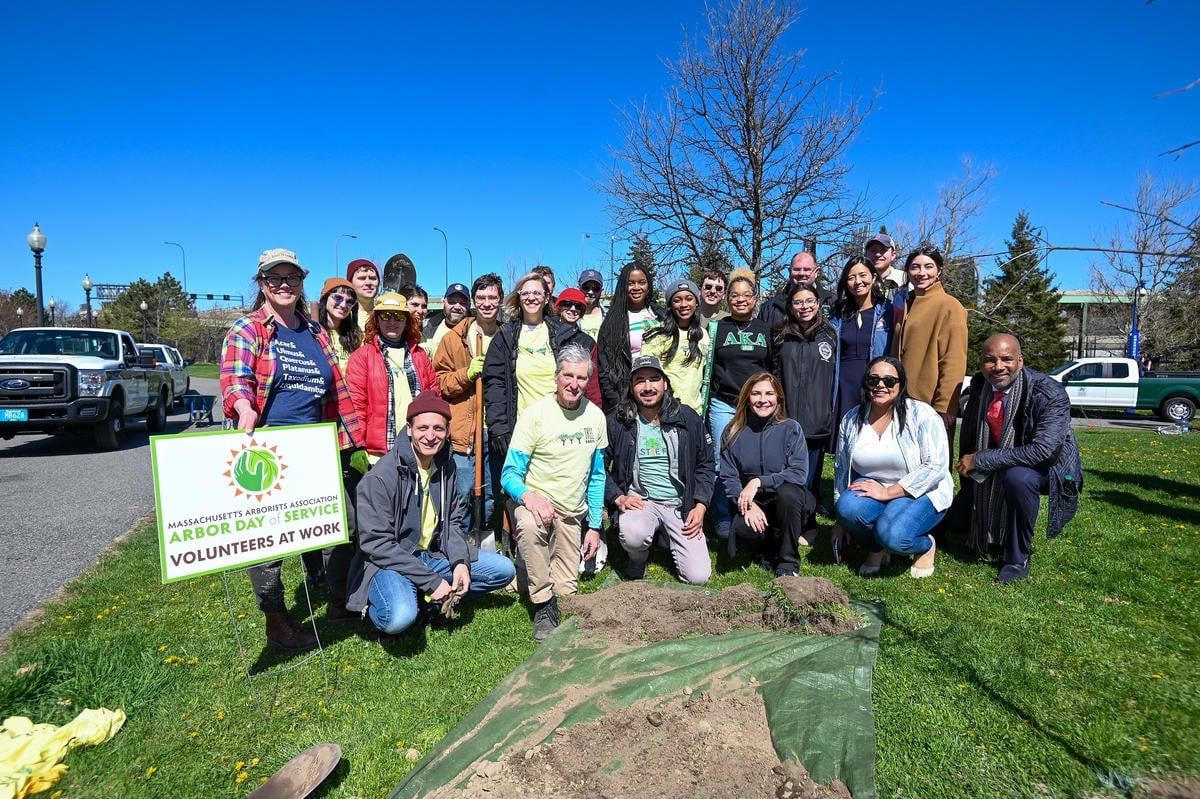Equitable Access to Nature
Nature in the City
Mass Audubon’s Nature in the City Program envisions a Massachusetts where all city residents—no matter their race, income, ability, spoken language or lived experience—have access to greenspaces that bring them joy, connect them to the natural world, and address the effects of climate change.
Nature cleans air and water, cools neighborhoods, safeguards wildlife, and provides critical mental and physical health benefits. And there are the significant inequities in access to nature and the human health benefits it provides.
The presence of natural areas, parks, and trees in the Commonwealth’s cities is tied to the racial composition and economic status of our neighborhoods. Higher income or white neighborhoods tend to have greater access to urban greenspaces than communities of color and communities with lower incomes. Nature in the City works to reverse this trend by focusing resources in historically excluded and disinvested neighborhoods to advance the goal of inclusive and equitable access to nature for all.
About Nature in the City
Nature in the City is a call to action to address the inequitable distribution of nature in Massachusetts through protecting, restoring, and activating urban greenspaces in Massachusetts’ cities. Not only do we work to increase physical access to protected and restored natural places, but we seek to generate a sense of belonging for people who have felt unwelcome and under-represented.
Our work will only succeed when done in partnership with communities. The work we do with each community is based on a strong understanding of the community’s assets and needs. We listen, learn, and support our partners as we collectively work toward a shared goal of increasing access to nature.
By growing the number of urban greenspaces and improving their quality, the Nature in the City program also provides opportunities for nature-based programming and builds grassroots advocacy for policy changes that regard nature as a core community health asset.
Updates and Progress
Building off the success of Mass Audubon’s two urban wildlife sanctuaries, Boston Nature Center in Mattapan and Broad Meadow Brook in Worcester, we’ve hit the ground running.
Chelsea
Mass Audubon, GreenRoots, and The Neighborhood Developers are working to acquire 18 acres of waterfront property in Chelsea and transform it into climate-resilient park with mixed-income housing and community amenities. Learn more about this project
Boston
Working with the City of Boston's Office of Environment, Energy and Open Space, we formed an alliance of nonprofit organizations whose goal is to increase the city’s urban tree canopy by planting trees on private lands. The Alliance tree planting efforts are centered on neighborhoods identified in Boston’s Urban Forest Plan as under-resourced, historically excluded, and socially vulnerable areas. Learn more about the Boston Tree Alliance
We are also working with the city and other partners to restore Canterbury Brook, a local stream in Mattapan. And in Hyde Park, we are partnering with the Friends of Crane’s Ledge Woods to advocate for the protection of the woods.
Cambridge
We are partnering with the Massachusetts Department of Conservation and Recreation (DCR) to run the Magazine Beach Park Nature Center, which offers free drop-in children’s nature activities, adult walks and lectures, school programs, community festivals, and more from April through November.
We’re also partnering with community and business organizations in North Cambridge to protect and activate Jerry’s Pond with environmental programming offered at a planned Eco-Pavilion on the property.
Lowell
In December 2023, Mass Audubon completed its purchase of the former Rollie’s Farm property, protecting the last family farm in Lowell for the public to enjoy in perpetuity.
The project to create the Pawtucket Farm Wildlife Sanctuary is a driven by a partnership between Mass Audubon, the City of Lowell, Lowell Parks & Conservation Trust, and Mill City Grows. The property will become a wildlife sanctuary and environmental education center that brings the benefits of nature and community farming to an urban setting.
How You Can Help
By working together in and with communities, we can build healthy, vibrant, and green cities that are more resilient to climate change, support human well-being, and provide ecologically rich spaces to attract and support wildlife.
If you would like to get involved, contact us. Want to help this program grow and succeed? Make a donation today
Latest News
See all newsMass Audubon, GreenRoots, and The Neighborhood Developers Plan New Climate Resilient Park with Housing in Chelsea
Learn MoreLawrence's Afterschool Students Discover Nature in Their Schoolyard
Keep ReadingQ&A With Tree Eastie's Bill Masterson, Boston Tree Alliance partner
Keep ReadingStay Connected
Don't miss a beat on all the ways you can get outdoors, celebrate nature, and get involved.






